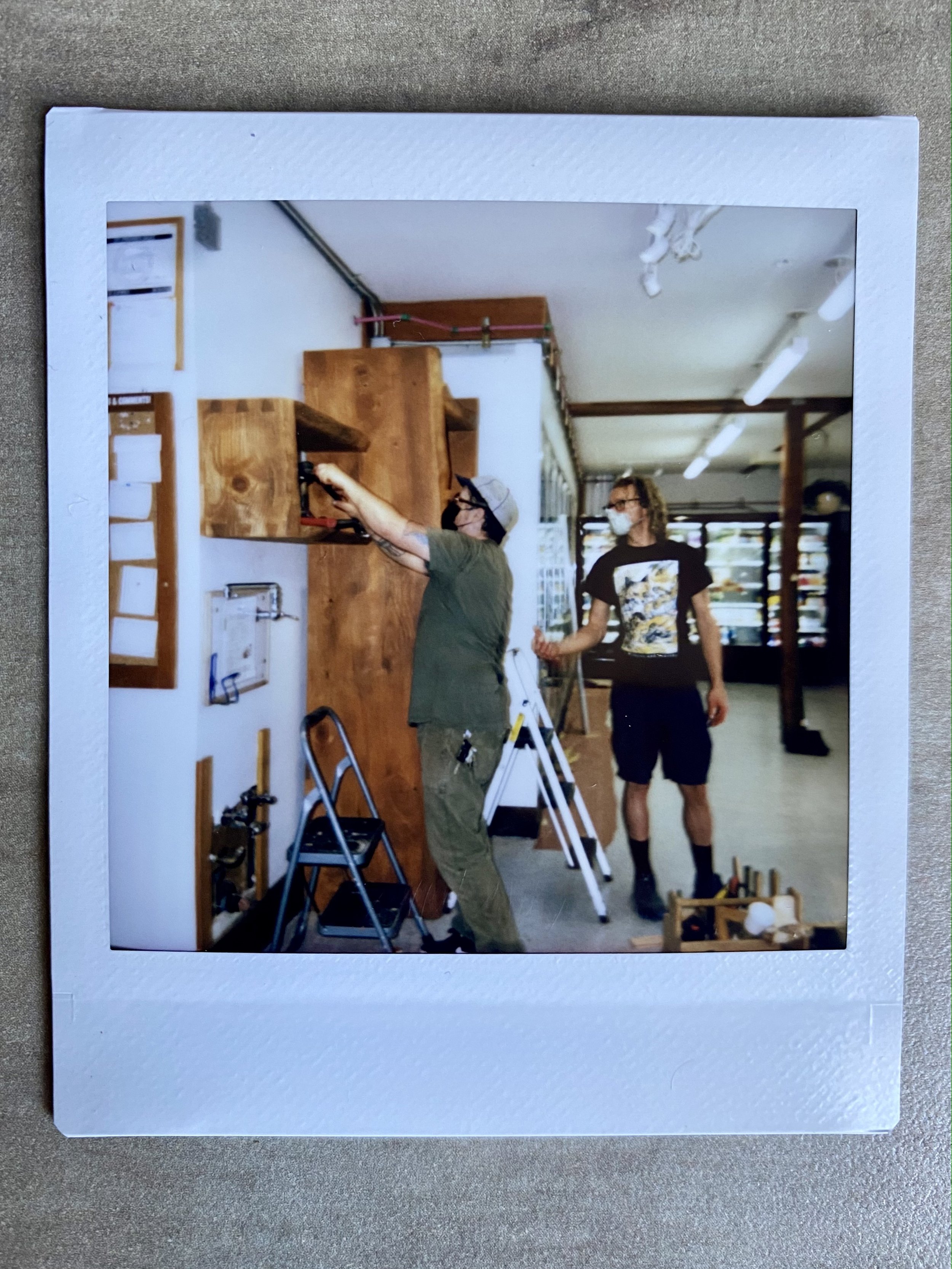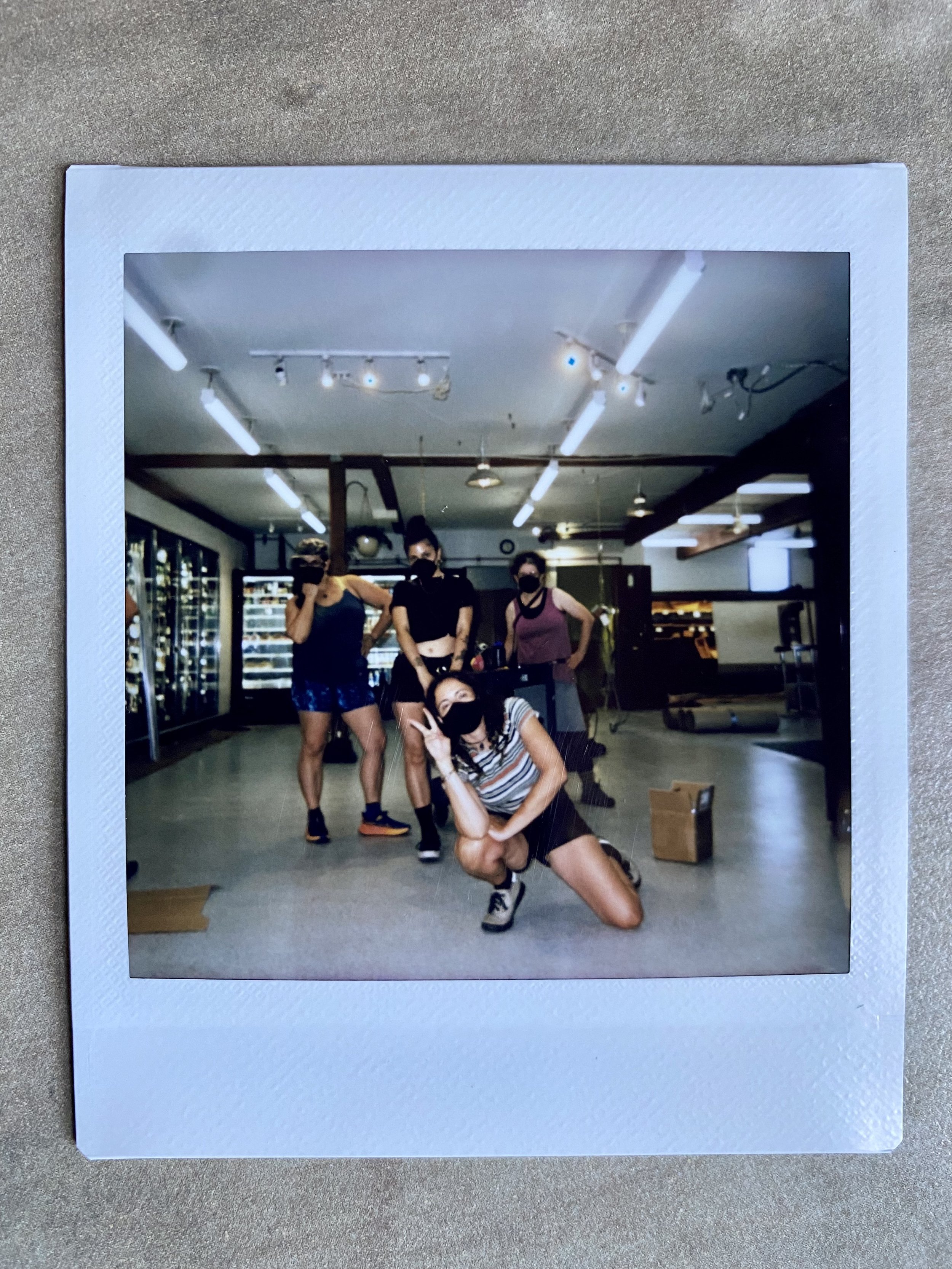School aid apples and pears, which fill a bin at People’s every fall, seem too good to be true. The little fruits embody everything that the Co-op stands for.
They’re organic. They’re local. At only 99¢ a pound they’re affordable. They’re delicious. But best of all; more than 90% of what you pay for them goes straight to schools in our community. Essentially, when you buy school aid apples and pairs you are making a donation to local schools, and getting local organic fruit in return.
The program is simple. A local farm sells the fruit to the Co-op and donates 100% of the price to community schools. The produce buyers at People’s are committed to buying and stocking these fruits—fruit that the store makes no money by selling—year and year again. Our produce department saves space on the crowded sales floor and sells (they usually add 10% to cover losses) and folks like you chose to buy the school aid fruit instead of any of the other plethora of choices in the produce section. School Aid works because a farmer, a store and shoppers all make the choice together to support their community.
The School Aid apples and pears can make a powerful difference in our communities. However, to understand the School Aid fruits and the program they make possible you have to know where they come from.
The apples and pairs that fill People’s School Aid bins all come from Mt. Hood Organic Farm. The farm lies to the south of Hood River, 6 miles, as the crow flies, form the summit of Wy’east. To call the orchard beautiful is an understatement.
The farm is as unique as it is picturesque. The orchard is the first property to draw from the east fork of Hood River. The melt water that irrigates the trees is as pure as it gets. Mt. Hood Organic Farm’s altitude means that the fruits grown there are usually smaller, but sweeter, than those produced by other orchards. Just like wine grapes from different vineyards, apples and pears from different orchards—with their unique micro-climates—have very different properties. The fruits’ size and unique flavor makes them perfect for light snacking or for school lunches.
One of the most unique things about the farm is the man who runs it; John Jacobs. He exemplifies the old proverb about good deeds: “don’t let your left hand know what your right is doing”. The school aid program is his invention; he just doesn’t want any credit.
John Jacobs has an inspiring vision for the world and in his words it looks a lot like “Mr. Roger’s Neighborhood.” In the Neighborhood, people know one another, and take care of each other. The philosophy informs everything that Mt. Hood Organic Farm does. The orchard was the first to grow and organic apples and pears in the region. Despite the financial challenges of farming in this way Mt. Hood Organic has worked tirelessly to be good to their neighbors downstream, their environment, and their customers.
Mt. Hood Organic Farm also gives back to their communities directly. Through the School Aid program thousands of dollars are donated every year to education. A few times a year the farm even hosts classes of kids who come out and pack bags of fruit to sell which raise money for class trips and other educational opportunities.
In Jacob’s neighborhood “People’s is the only grocery store.” The Co-op fits well into the vision of neighborliness that he describes. The Co-op has been buying organic apples and pears from the farm for 30 years. People’s has always given him the best price for his fruit. Produce buyers from other natural grocery stores consistently try to barter and undercut the asking price for the produce—making the difficult job of organic farming harder. The produce buyers at People’s, according to Jacobs, have never tried to haggle with him or buy fruit for less than the Farm knows they need to cover their costs and make a living.
People’s is also the only store in Portland to currently sell School Aid fruit. The store makes no money selling it, and gives up valuable retail space to do so. But offering School Aid apples and pears year after year is something that our produce team believes in.
The little School Aid fruits stand for something huge. They stand for strong communities, for a long-term commitment to affordable organics, for high quality foods, and for a much-needed people before profits approach to life and business. It’s not often that a few little fruits can stand for so much good—or that your dollars can so directly support your community and values.










